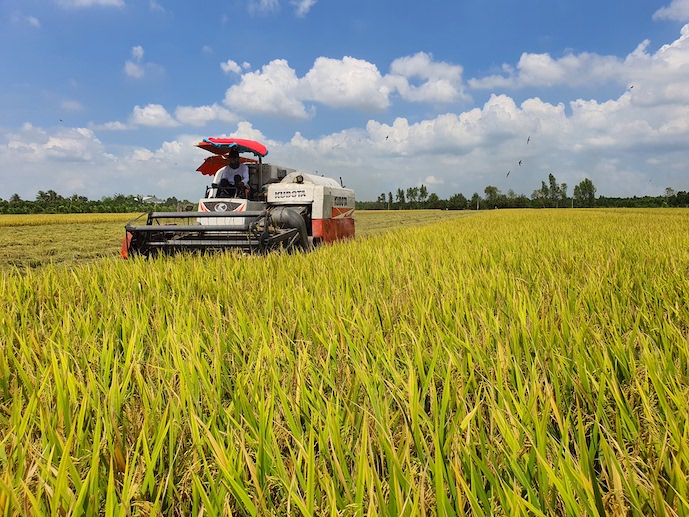HCMC – The Vietnam Chamber of Commerce and Industry (VCCI) has called for the removal of several outdated regulations that are seen as hindering businesses, particularly new entrants in the rice export sector.
VCCI has recently submitted its comments to the Ministry of Industry and Trade on the draft decree amending and supplementing several provisions of Decree 107/2018 and Decree 1/2025 on rice export business.
It said that the revision of rice export regulations should aim to create a transparent, low-cost, and easily compliant business environment, ensure fair competition, and reduce unnecessary business costs.
The requirement in the draft decree that rice exporters must own storage facilities is unnecessary, VCCI said, noting that businesses that rent warehouses can still meet storage and operational needs.
Requiring exporters to own warehouses increases investment costs, creates barriers for small and new businesses, and affects the competitiveness and value chain of the rice sector.
VCCI also objected to the regulation requiring newly licensed businesses to stockpile at least 1,250 tons of rice within 45 days of receiving their export license. Without having signed export contracts, this requirement places a significant financial burden on companies and limits their ability to proactively plan their business operations.
It argued that the regulation on revoking export licenses if businesses fail to report their circulating reserves within 45 days of receiving a reminder is unreasonable.
While reporting requirements are necessary for management purposes, VCCI emphasized that late reporting is merely an administrative issue and should not be grounds for license revocation.
Regarding the regulation prohibiting unlicensed businesses from outsourcing rice exports to licensed ones, VCCI noted that this limits business opportunities for many companies, especially those with production capacity but not yet eligible for licensing.
As a result, some businesses have been forced to suspend operations, while customers have turned to buying rice from Cambodia and Thailand, negatively impacting Vietnam’s rice exports. Meanwhile, export entrustment is a legal activity, as rice is not a banned export commodity.
According to the Ministry of Industry and Trade, as of April 28, Vietnam had 152 businesses eligible for rice export, down by six compared to the list published in February. Customs data showed that in the first four months of this year, Vietnam exported over 3.43 million tons of rice, earning nearly US$1.77 billion. Although export volume rose by 8.1% year-on-year, export value dropped by 13.3% due to the average export price falling to just US$515 per ton.









